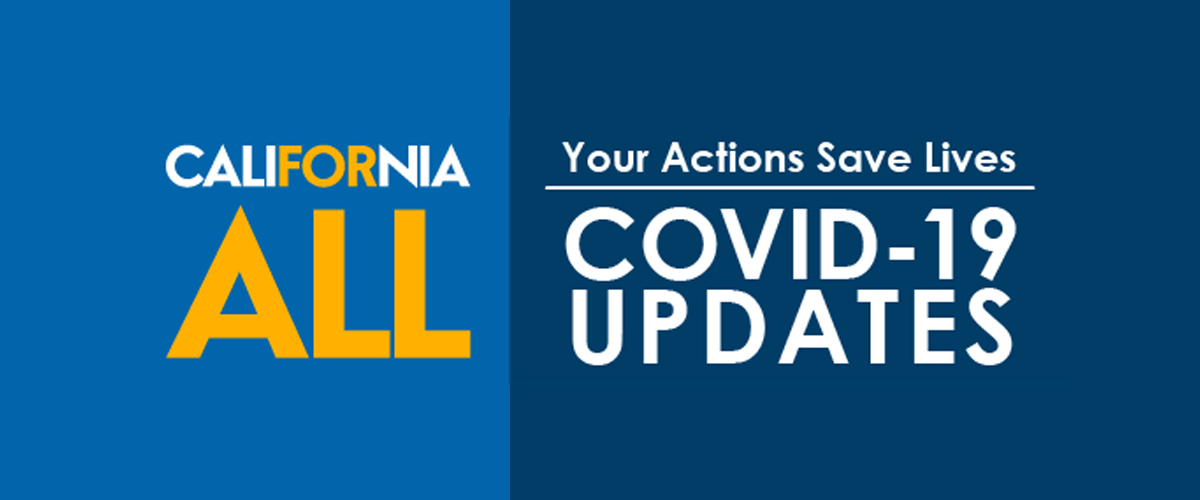Safely Reopening California
June 15, 2021

June 15, 2021
Originally Published On COVID19.CA.GOV
Thanks to your trust in the vaccine and falling transmission rates, California has fully reopened its economy. This means no more physical distancing, no capacity limits, no county tiers, and relaxed mask guidance.
California is moving Beyond the Blueprint to safely and fully reopen the economy.
As of June 15, 2021, the Governor terminated the executive orders that put into place the Stay Home Order and the Blueprint for a Safer Economy. He also phased out the vast majority of executive actions put in place since March 2020 as part of the pandemic response, leaving a subset of provisions that facilitate the ongoing recovery.
The new public health order effective June 15 supersedes all prior health orders. The order has limited restrictions, only related to masking and mega-events, as well as settings serving children and youth pending an expected update to the K-12 schools guidance by the Centers for Disease Control and Prevention.
Read the Governor’s orders: N-07-21PDF and N-08-21PDF. Find details in the California Department of Public Health’s Beyond the Blueprint for Industry and Business Sectors and the Questions & Answers.
Everyday life will feel a lot like before COVID-19. But reopening safely means continuing vaccinations and protecting the health and well-being of Californians.
Restaurants, shopping malls, movie theaters, and most everyday places will be open as normal with no capacity limits or social distancing required. Protect yourself and others by keeping these common-sense rules in mind.
| Do | Don’t |
| ✔️ Wear a mask if you’re unvaccinated, especially in crowded, indoor environments | ❌ Expect others to be ready to shake hands or hug |
| ✔️ Follow safety rules for mega-events | ❌ Lose your proof of vaccination |
| ✔️ Get tested if you’re sick | ❌ Think you can’t get the virus or pass it on because you feel well |
| ✔️ Wear a mask while on public transit, even if you’re vaccinated | ❌ Assume everyone is vaccinated |
| ✔️ Honor mask and distancing rules in place at a private business | ❌ Expect all COVID-19 rules everywhere to be lifted |
| ✔️ Get tested if required by your workplace | ❌ Travel into the U.S. without proof of vaccination or a negative COVID-19 test |
| ✔️ Wear a mask when you travel | ❌ Travel if you’re sick |
California’s Department of Public Health has updated statewide masking guidance to match the CDC’s guidance, lifting California’s mask requirements for vaccinated individuals starting on June 15. Vaccinated people are able to come together without masks in most circumstances.
People who are unvaccinated must continue to wear a mask indoors in public settings to protect themselves and others. Also, there are some settings where masking is still required for everyone, such as:
See CDPH’s Guidance for the Use of Face Coverings to learn where masks are recommended or may be required.
California no longer has a travel advisory in effect. There is now no state recommendation to test and quarantine before and after travel.
However, CDC travel requirements are still in effect:
Get tested if you feel sick, and avoid traveling if you have or may have COVID-19.
California continues to follow current COVID-19 public health guidance for K-12 schools until further updates from the CDC.
Day camps and other supervised youth activities must follow these specific portions of the current K-12 schools guidance:
Day camps and other supervised youth activities may post the checklist for day camps and other supervised youth activitiesPDF in the facility.
The K-12 schools guidance does not apply to youth sports.
Current guidance for childcare programs and providersPDF remains in effect.
The guidance for overnight camps remains in effect through September 2021 unless otherwise indicated by CDPH.
Mega-events are indoor events with 5,000 or more people and outdoor events with 10,000 or more people. This includes events like:
For indoor events with 5,000 or more people, attendees must confirm proof of vaccination or negative COVID-19 status in order to attend.
For outdoor events with 10,000 or more people, it is recommended that attendees confirm proof of vaccination or negative COVID-19 status in order to attend.
All attendees must follow CDPH’s Guidance for the Use of Face Coverings. These public health requirements and recommendations will be reviewed and reevaluated no later than September 1, 2021.
There are no physical distancing or capacity limits for businesses and activities. Most businesses are required to maintain compliance with California’s COVID-19 Prevention Emergency Temporary Standards (ETS), which include current public health guidelines. Certain workplaces, like hospitals and correctional facilities, are required to comply with the Aerosol Transmissible Diseases (ATD) standard instead of the ETS. Find more details in the frequently asked questions about the COVID-19 Prevention ETS.
Visit saferatwork.ca.gov to learn more about COVID-19 workplace requirements.